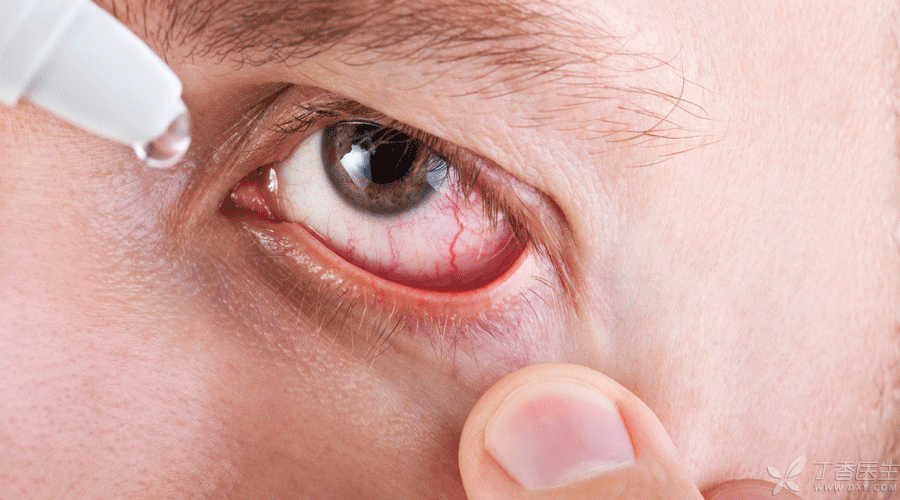
The summer heat is unbearable, and the swimming pool has become the busiest place. On the other side, ophthalmologists are also busy.
At ordinary times, there are so many children who come to see a doctor without holidays. This is good. One by one, [pink eye]. Ask, is your eyes flooded? Did you rub your eyes? The Xiong Haizi people all nodded reluctantly, which was both funny and pitiful.
As a person who will die without swimming goggles, I find that many people are different from me: they are too troublesome to wear swimming goggles when swimming, and even deliberately open their eyes and dive into the water [challenge themselves].
This is gambling with your own eyes!
Challenge yourself? There is no good in eye water!
1. The disinfectant has obvious irritation to eyes and may cause allergic reactions.
Swimming pool water contains disinfection and sterilization ingredients such as sodium hypochlorite, which will obviously stimulate delicate eyes, causing red eye, eye tingling, tears, etc.
So, how do people who dive with their eyes open do it?
I used to think it was strange! It was not until I became a doctor that I found out. Everyone’s sensitivity to [discomfort] is really far from enough. Moreover, The eye also has a process of adapting to external stimuli. More stimuli make the eye less sensitive. However, we should not [exercise] this ability at all. The eye has a way to protect itself. It can feel uncomfortable in time and remind us what to do and what not to do, which is a good thing.
In addition, if you happen to be allergic to any component in the water, it may directly lead to acute allergic inflammation of the eyes, and the eyes may become particularly red and swollen, requiring timely treatment in the hospital.
2. Bacteria in water may cause eye infection
Don’t think that there are no germs in sterilized water. Studies have shown that some tenacious microorganisms will not be completely killed by disinfectants. There are countless microorganisms in unsterilized water such as the sea or lake.
Besides, look at the swimming pool like [cooking dumplings]. In case any swimming pool fails to disinfect, or someone [hisses] in the swimming pool, or the person next to you actually has pink eye…
Thinking is extremely frightening, and you are still brave [challenging yourself].
3. Water flushing will damage the [protective layer] on the eye surface.
If more water enters the eyes, it is equivalent to washing the surface of the eyes again, which is not a good thing for what.
Usually, our eyes are protected for a long time by a layer of tears, which contains many antibacterial and corneal nutrients. After being washed off, our eyes are equivalent to being [naked]-exposed to swimming pools without any protection, and exposed to various disinfectants and germs.
If you already have dry eye, conjunctivitis and other ophthalmic diseases, eye inflow will aggravate your illness.
How to protect your eyes when swimming?
1. Wear goggles, goggles, goggles
Say important things three times!
Not only pool water, in non-emergency situations, any non-medical water source cannot enter the eye at will. If you can wear swimming goggles to protect you when swimming, the possibility of entering the water will be greatly reduced, and some eye problems caused by this will also be avoided.
Don’t be too troublesome, but lift a finger, in case something happens to your eyes, that is the real trouble.
2. Don’t wear contact lenses to swim
Readers who wear contact lenses all know that contact lenses need regular care and cleaning to remove deposits such as protein. In fact, germs also adhere to the surface of contact lenses. In this way, germs will no longer [pass by] the eyes, but will have a long [intimate contact] with your cornea.
Then some people said, I wear invisibility inside and a swimming goggle outside, is that all right?
It will be better, but if there is no guarantee that the pool water will not [slip] into the eyes, to be on the safe side, buy a swimming goggles with degree. This money cannot be bad.
3. If your eyes are flooded, you can drop some eye drops after swimming.
If your eyes are uncomfortable with water, you can drop some artificial tears to help wash away some of the sewage and relieve the discomfort of your eyes. Some eye drops containing antibiotics can also be used briefly to kill bacteria.
But remember not to use it for a long time. If your eyes are still uncomfortable after dripping for several days, go to the hospital quickly.
4. There are wounds on the eye surface. Never swim.
Keratitis, corneal foreign body, just after eye surgery and other circumstances, the eye protective layer is incomplete, very vulnerable to germs, swimming is absolutely not allowed! Not even with swimming goggles!
In addition, if the eyes have been infected, then you cannot enter the swimming pool. Because it may not only infect others, but also hurt yourself.
